SWEET AS STOLEN SUGAR
David Kramer’s new musical – making right with music
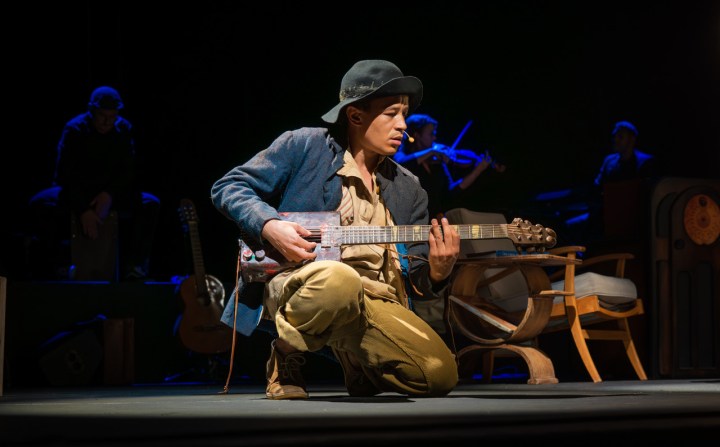
Forget about crown jewels, what happens when you filch a song you don’t quite understand?
David Kramer’s new musical, Ver in Die Wereld Kittie, has just won two prestigious Kanna awards, highlighting Kramer’s continued contribution to South African theatre and cultural life.
But wait, first this.
You are going to love it.
Back in 1952 when Doris Day and Frankie Laine cranked out a massive international hit with the song Sugarbush, little did they know that the bush they serenaded would today probably be bewaxed and vajazzled.
In truth and firm reality the “sugar” of the title refers to the infamous “suikerhuise” (sugar houses), or brothels, that once flourished in the legendary demolished District Six in Cape Town.
And the bush is well, a bush, a vajayjay as they used to say on Oprah.
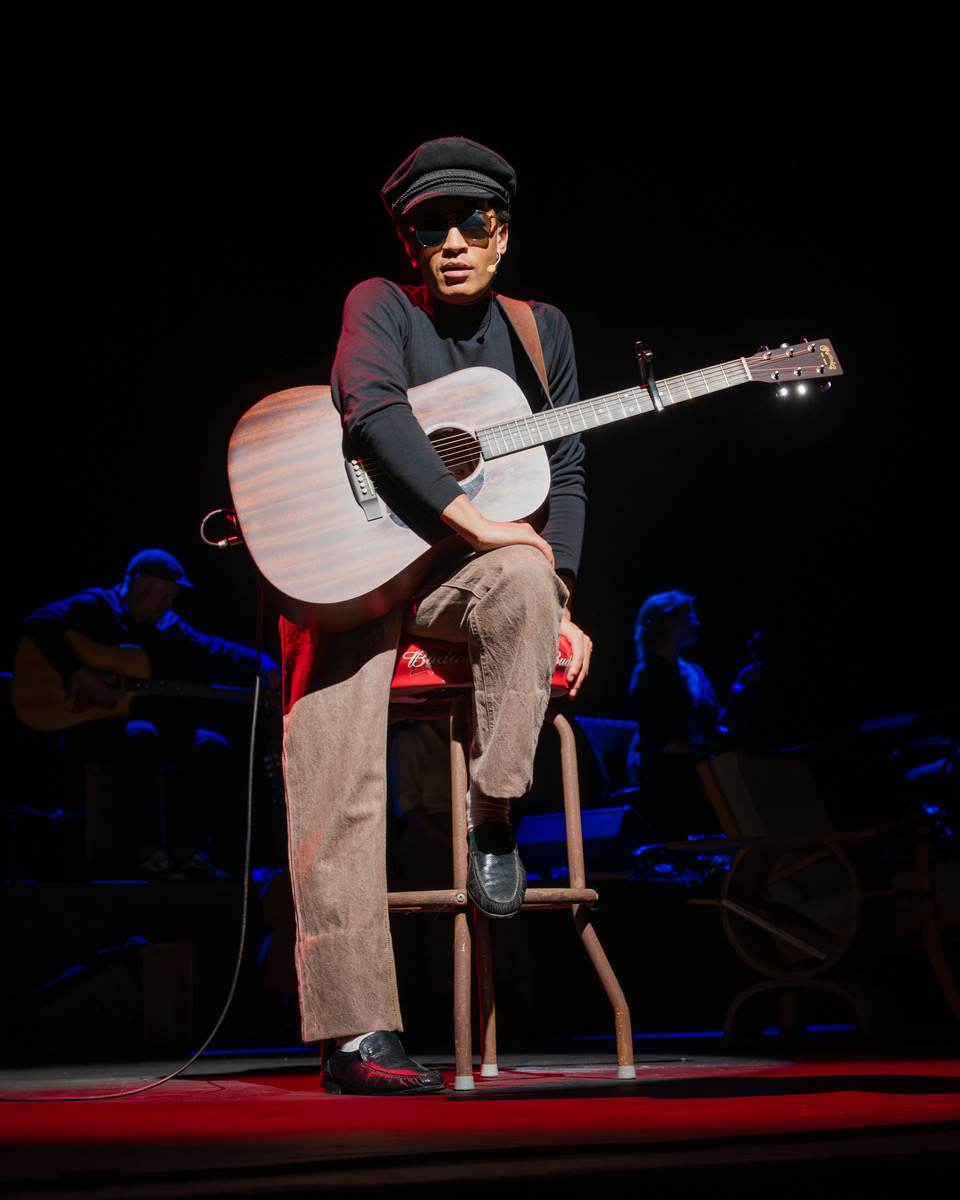
Dean Balie in one of his many shape-shifts in ‘Ver in Die Wereld Kittie’. (Photo: Guys Loubser)
Singer Eve Boswell, who also had a hit with the song on her album, Songs from the Veldt, even had the British monarchy tapping along with their footsies and fingers at the Royal Variety Performance in the Colosseum in 1952.
Ver in Die Wereld Kittie premiered at the Klein Karoo Nasionale Kunstefees earlier this year before enjoying an all-too-short run at the Suidoosterfees which takes place annually at Artscape on the Foreshore (as we like to call it).
The festival, birthed in 2003 under the guidance of Jakes Gerwel, anti-apartheid stalwart, former rector of the University of the Western Cape and director-general of the Presidency during Nelson Mandela’s term of office, celebrated its 20th anniversary this year.
This was marked by an extraordinary range of new work across a spectrum of disciplines, and featuring new stars as well as familiar household names. There were book discussions, exhibitions, theatre and music productions, youth theatre, comedy, choirs, children’s theatre, dance and music. There was work for the artists, lots of it. It included Kramer’s delicious new musical.
“Kittie” won Best Production in the musical category and Best Ensemble for the ridiculously talented cast consisting of the mesmerisingly, shape-shifting musician/actor/singer Dean Balie as well as Rushney Ferguson, André Terblanché and Jenny Stead.
One man’s bush
Long ago, when Kramer and Taliep Petersen conjured their unique alchemy to create and produce District Six: The Musical in 1987 – a theatrical phenomenon which ran up 500 performances – Kramer was wrongly accused by some of cultural appropriation.
Combined with Petersen’s unfailing ear for musical clarity, his vast musical and historical knowledge and his talent for blending the old with the new, the two men, a Muslim and a Jew, composed songs which today feel as if they have been around as long as the South Easter.
Klop Klop, Seven Steps of Stone, Broertjie and basically every other song that grew in, from and around the musical are all part of visible and audible history now.
Watch Klop Klop performed live here.
Until 1987 District Six and forced removal was a wound in the hearts and minds of those communities uprooted by apartheid legislation and doomed to the grey, sandy, crime-ridden Cape Flats.
Then came District Six: The Musical.
Petersen too back then, had been accused, not of appropriation, but of tampering with tradition, as author Paula Fourie has set out in her majestic biography of the music icon titled Mr Entertainment: The Story of Taliep Petersen (Lapa Publishers).
But more on this significant book later.
With Ver in die Wereld Kittie Kramer at times turns the joke back on the thieves, the unthinking who do appropriating without attribution and without understanding cultural, social and political subtleties.
All along Doris Day, Frankie Laine, Eve Boswell were crooning about a punter’s desire for a woman’s sugarbush while royalty swayed to the beat.
Then at some turn the original Afrikaaps lyric became Afrikaans and the “traditional” song became a children’s nursery rhyme.
“Suikerbos ek wil jou he, Suikerbos ek wil jou he, Suiderbos ek wil jou he, wat sal jou mama daarvan se?” (loosely and literally translated as Sugarbush I want you so, Sugarbush I want you so, Sugarbush I want you so, what’s your momma gonna say?).
Like Solomon Linda who recorded in 1939 on beeswax the song Mbube, appropriated and turned into the hit The Lion Sleeps Tonight, while Linda died a pauper, the real songwriter of Suikerbos never saw benefit, fame, fortune or even recognition. Until now.
Read more in Daily Maverick: In the copyright jungle, the lion sleeps tonight
Worcester Days
Kramer had been working on the musical, later made possible by the Feesteforum and the Nasionale Afrikaanse Teater Instituut (NATI), when he posted some background on Facebook.
It is a remarkable true story.
“Many years ago in my hometown Worcester, lived a very talented young musician who left town and went on to become a household name in the US.
“He had his own radio programme on NBC in New York which broadcast to countries all over the world. He had his own band and performed concerts across America and Europe. And he was a published author.
“As a recording artist he released many albums which sold extremely well in North America and all over the world. His book for children was an international success.
“He lived and worked in Hollywood and was friendly with the film stars of the day. And yet back home hardly anyone remembered Joseph Pessach, except my wife Renaye’s aunt Lily Lange.
“As a young man in the early 1920s, Joseph was courting Lily, but her family discouraged the relationship as they felt he was not a suitable candidate for Lily’s hand: he was a musician, a mere entertainer whose prospects were minimal.
“Little did they know what a star Joseph would become.
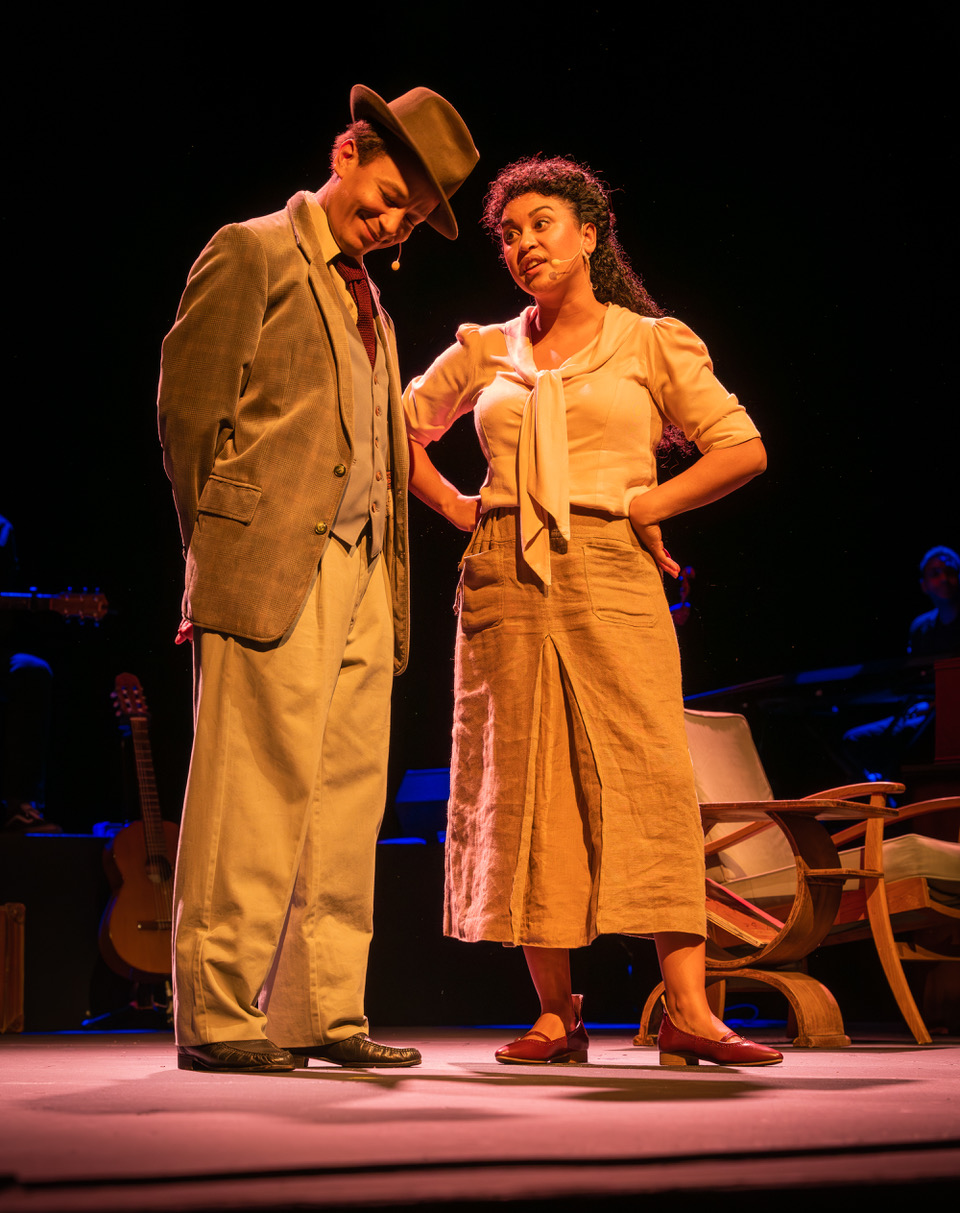
Dean Ballie as Koos Heunigbeck and Rushney Ferguson as Kittie in ‘Ver in Die Wereld Kittie’. (Photo: Guys Loubser)
“Years later when I married Renaye, Lily would proudly recall her relationship with Joseph and show us the newspaper clippings of his huge success in America which she kept under glass on her dressing room table.
“That’s how I first became aware of him – Josef Marais – the international celebrity from Worcester, that no one remembers.”
Pessach, born in Sir Lowry’s Village to Jewish immigrants and educated in Worcester.
Right there, slap bang among David Kramer and JM Coetzee, two extraordinary chroniclers of rural life in apartheid South Africa. Kramer through music from the start.
Claiming the songs
Sugarbush was neither Marais’s nor anyone else’s to claim. It belonged to Koos Heuningbek, the man who also inspired Pessach’s collection of stories Koos, the Hottentot: Tales of the Veld.
Koos had worked on Pessach’s father’s farm and the young Joseph had sat around a fire at night, stealing with his ears and heart while the storyteller Koos spoke his world and played his songs.
You will never listen to Suikerbossie again in the same frame of mind.
As Kramer remarked during a pre-discussion with Paula Fourie about her PhD on Petersen – turned into a book for wider reach and which formed part of the Jakes Gerwel discussion series – if you think about it long enough, the folk song Bobbejaan klim die berg might have quite another meaning.
Fourie’s was an 11-year project piecing together the scattered archives of Petersen whose life ended when his wife Najwa Petersen ordered a “hit” on her husband in 2006.
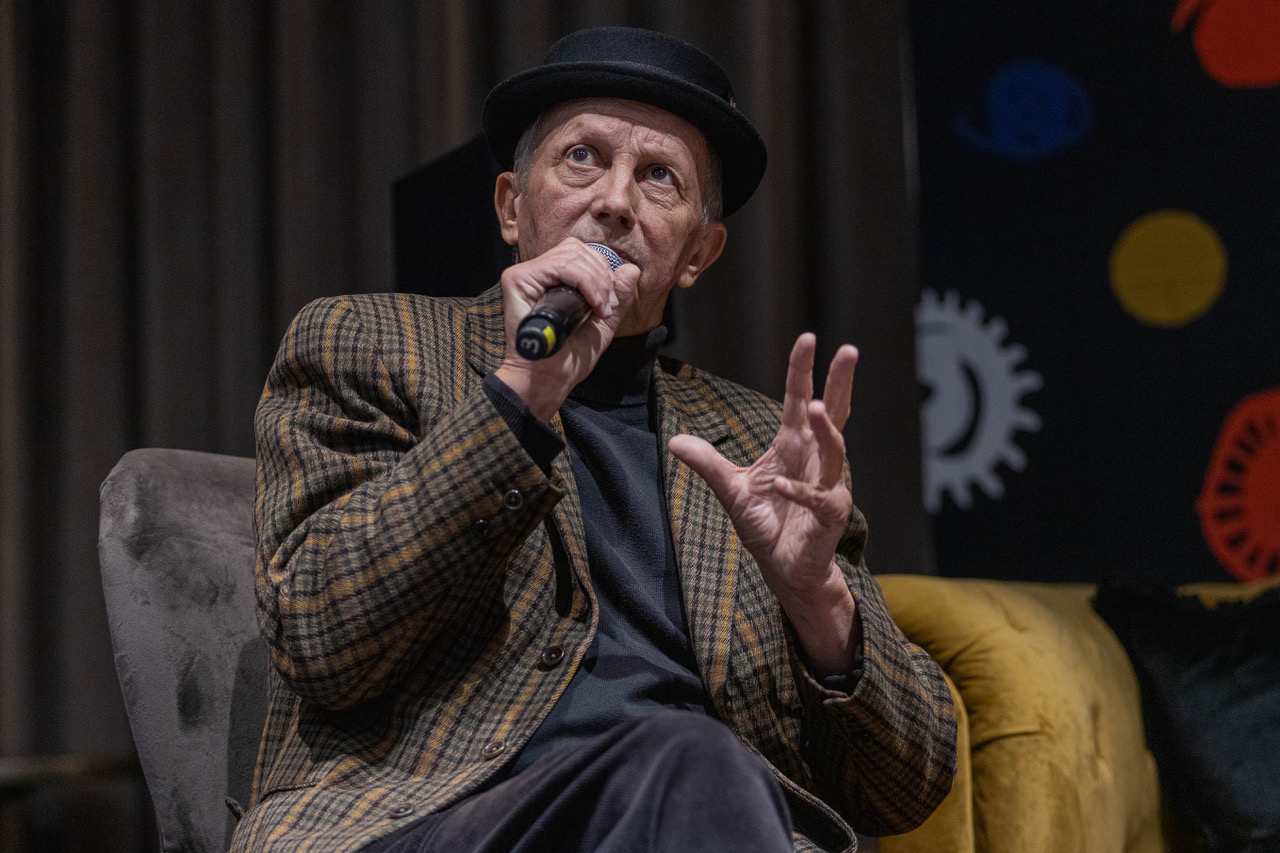
David Kramer’s new musical ‘Ver in Die Wereld Kittie’ highlights his continued contribution to South African theatre and cultural life. (Photo: Guys Loubser)
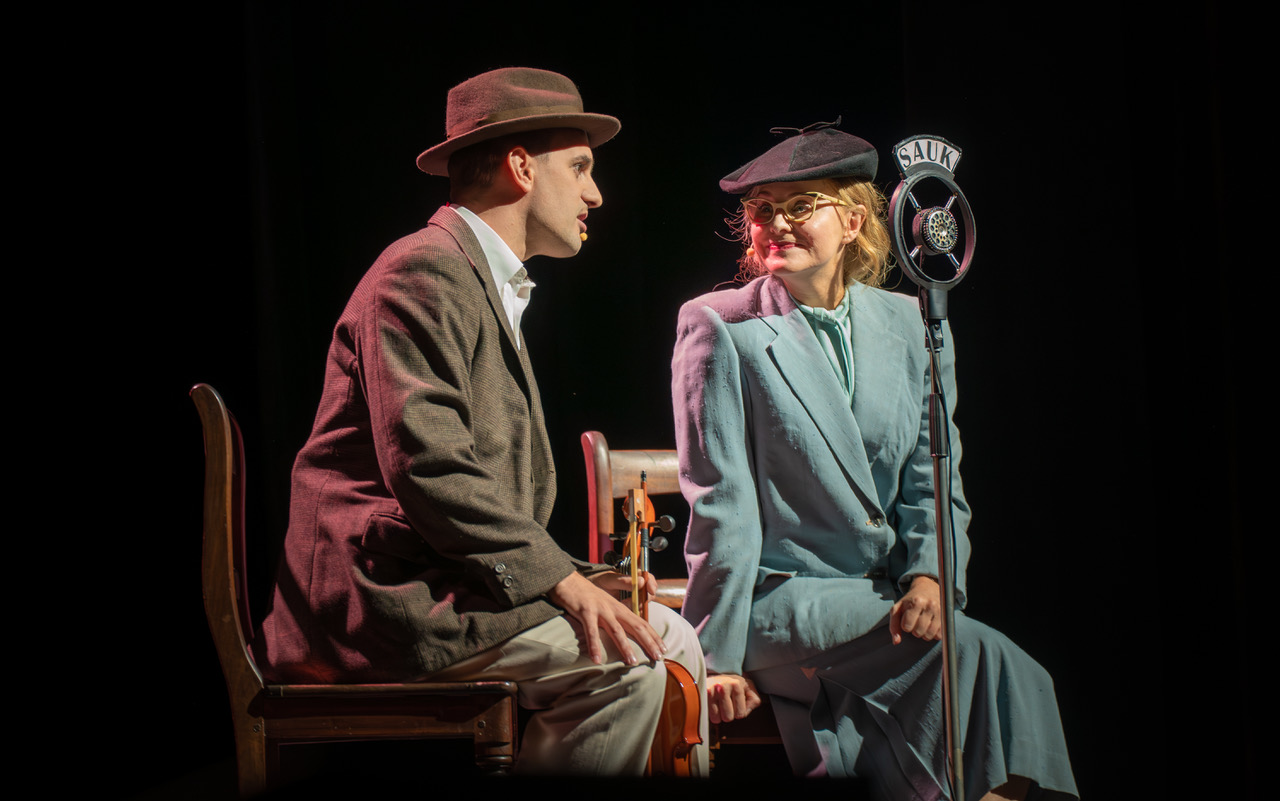
André Terblanché and Jenny Stead as Joseph Marais and Rosa de Miranda in ‘Ver in Die Wereld Kittie’. (Photo: Guys Loubser)
While that bullet may have put a temporary full stop to the life, times and legacy of Taliep Petersen, Fourie’s instinct as a choral conductor shines through in her ability to raise a chorus of voices, in their own frequency, who tell the story and make it live.
While the author had never met Petersen, she brings to life a complex, hugely talented, deeply spiritual and determined fighter for the freedom to be and to memorialise that which apartheid sought to destroy.
It is a story not only about Petersen, but about the history of Islam in the Western Cape, the rich musical traditions that were born in District Six and which included great artists like Zayn Adam and Terry Fortune.
Today it lives and thrives in the generations who grew up performing, across world stages from the West End to Broadway in Kramer and Petersen’s joyous collaborations over the years.
Those stars are everywhere, and they are big stars, too many to single out.
Ultimately it is the legacy of Jakes Gerwel, who believed in a common community of South Africans who speak our 11 official languages, and who can tell our stories in their own tongue. DM/ML
Disclosure: Marianne Thamm is an unremunerated member of the Suidoosterfees board.




 Become an Insider
Become an Insider
What a wonderful article! Thank you.
A ray of sunlight this article, I stay about 7 km away from Sir Lowry Pass ,and know the area well,thanks Mariann
Thank you for such an informative article. How many stories are there to tell? I’m now so amped to see the musical.
Where and when can we see it? PLEASE!